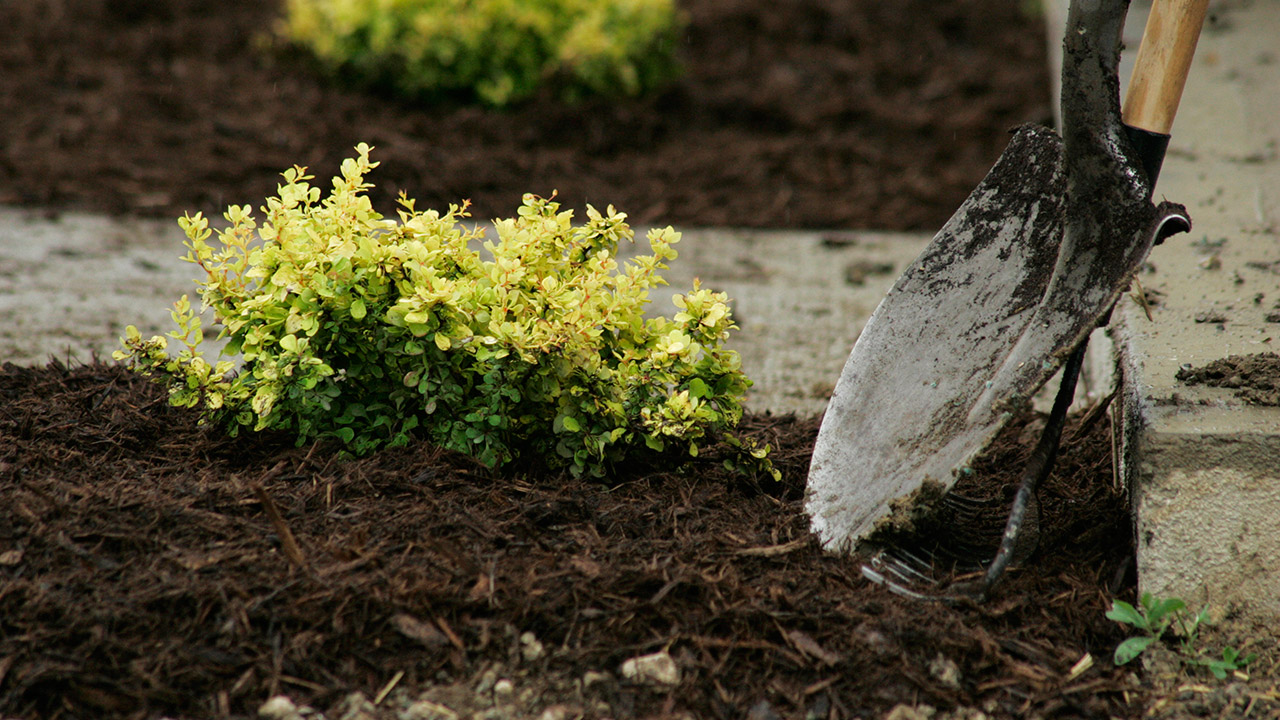
You might have a beautiful home, but adding landscaping to its exterior can dramatically improve its esthetics. Not only that, landscaping can significantly boost the value of your home as well.
When it comes to creating gorgeous landscaping, the right type and mix of plants, shrubs, and other greenery is a must, but their health and vitality all depend on the soil that they’re rooted in. That’s where mulch comes into the picture, which is a special type of soil covering that’s made out of a number of materials, including recycled wood. Not only can mulch maintain the health of the plants in your garden, it can also enhance the overall look of your exterior.
Here are 7 reasons why mulch should be included in your landscaping.
1. It Cleans Up the Garden
From a purely cosmetic perspective, adding mulch to your landscaping can dramatically improve its appearance and make it look much cleaner and more polished. If there are any empty spaces in your garden, mulch can be the perfect filler, as it’s much more cost-effective and requires a lot less maintenance compared to grass and other ground covers. Mulch can add a wonderful element of cohesion that does very well at creating a gorgeous garden. It even comes in a variety of materials, styles, and colors to help you customize your garden.
2. It Retains Moisture
The less water that’s needed to keep a garden well-hydrated, the better, especially in drought-prone places like California. Mulch has a wonderful ability to retain moisture in a garden and limit evaporation, which thereby reduces the amount of watering that a garden requires. That’s because mulch serves as a barrier between the roots of your plants and sunlight, which not only helps keep your garden moist, but also helps to cut down on water costs.
3. It Controls Weeds
Weeds can wreak havoc on a garden. Not only are they unsightly, they’re also highly invasive. Keeping on top of the weeds is a necessary part of landscaping maintenance, which is extremely time-consuming and labor-intensive. By introducing mulch to your landscaping, you can put a limit on the number of weeds that pop up in your garden and even make the ones that do grow a lot easier to get rid of.
4. It Encourages Plant Nutrition
Organic matter that decomposes naturally into the soil is very healthy for plants. Mulches that are made from organic materials (such as wood chips or plant matter) can make the underlying soil very rich in nutrients that feed the plants well and help them thrive.
5. It Aerates the Soil
Compacted, dense soil can make your plants suffer, which is why it’s necessary to aerate it once in a while. As such, adding mulch to your garden will encourage earthworms to set up shop in the soil which naturally aerates it without you having to physically take care of that task. Earthworms are very good at naturally improving the soil’s structure and keeping vital nutrients cycling appropriately.
6. It Prevents Soil Erosion
While it doesn’t rain very often in California, any rainwater that does hit the soil of your garden can wash it away – and take all the vital nutrients with it. Mulching can significantly reduce the amount of rainwater runoff that can expose roots and ultimately cause damage to the plants.
7. It’s Effective at Animal Control
Despite your best efforts to keep animals away, they still have a way of getting into gardens and destroying plant life. One way to control the damage done by these critters is by mulching, which can hinder animals from invading your garden because they generally do not like the feel of mulch.
The Bottom Line
You’ve invested a lot of time, effort, and money into your landscaping project, so you want to be sure that it’s well cared for over the long haul. One way to keep it pretty and healthy is by simply adding some mulch to the plants and flower beds. This ground covering serves many purposes for gardens, and can help minimize the amount of work and capital spent on keeping it in pristine condition.